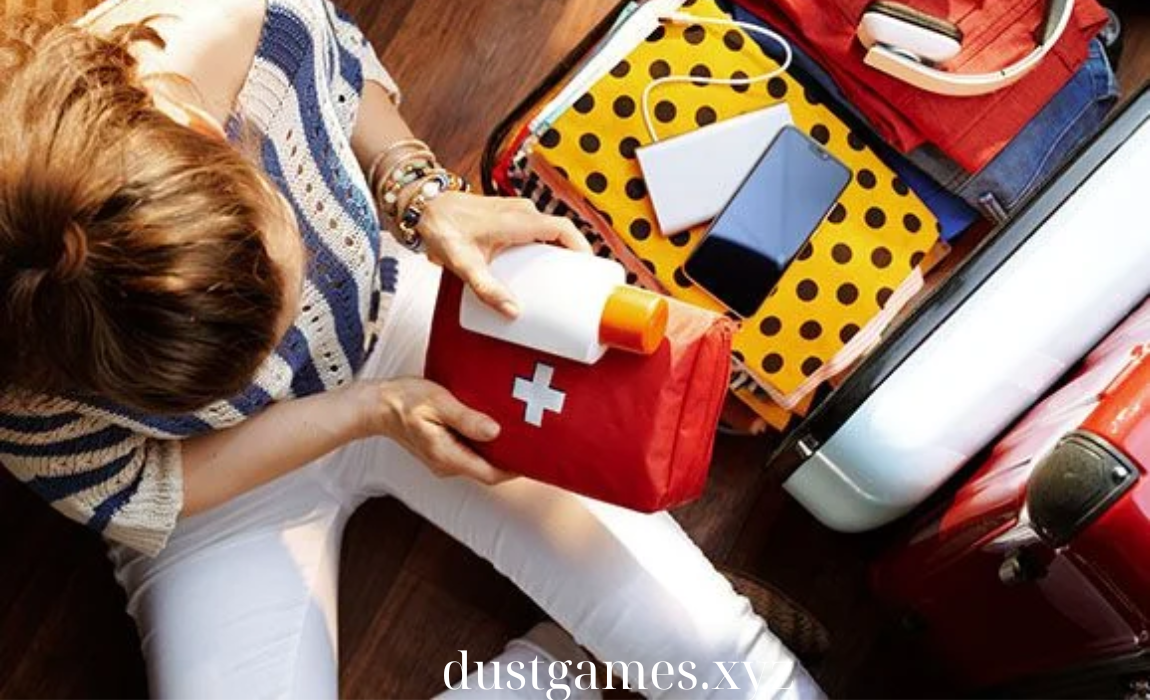Health Tips
Travel Health Precautions: Key Measures to Protect Your Well-Being
Traveling to new destinations opens up exciting opportunities to explore different cultures, cuisines, and landscapes, but it also requires careful attention to your health and well-being. While travel can be invigorating, it’s essential to take proactive measures to protect yourself from potential health risks along the way. Whether you’re embarking on an international adventure or a domestic getaway, prioritizing travel health precautions ensures that your journey remains safe and enjoyable.
Here’s a comprehensive guide to the key measures you can take to protect your well-being while traveling.
1. Research Your Destination’s Health Risks
Before setting off on any trip, especially to international destinations, it’s important to research the specific health risks associated with your destination. Different regions have unique climates, diseases, and health considerations that may require additional preparation.
For example, certain tropical regions may pose a higher risk of diseases like malaria or dengue fever, while other destinations may have food or water safety concerns. By researching in advance, you can take the necessary steps to safeguard your health, such as getting recommended vaccines or bringing along preventive medications.
The Centers for Disease Control and Prevention (CDC) and the World Health Organization (WHO) are excellent resources for up-to-date information on travel health risks by country, including vaccination recommendations, disease outbreaks, and food safety guidelines.
2. Get Vaccinated and Carry Preventive Medications
Vaccines are one of the most effective ways to protect yourself from infectious diseases while traveling. Depending on your destination, you may need vaccines for illnesses such as yellow fever, typhoid, hepatitis A and B, or rabies. Make sure to visit a travel clinic or consult with your healthcare provider at least six to eight weeks before your trip to ensure you have enough time to receive any necessary vaccinations.
In addition to vaccines, travelers heading to areas with a high risk of malaria or other mosquito-borne diseases should consider taking preventive medications. These medications, prescribed by your doctor, can significantly reduce your risk of contracting such illnesses.
It’s also a good idea to carry a basic travel health kit with essential medications, such as pain relievers, anti-diarrheal medications, antihistamines, and any prescription medications you may need. Having these on hand can help you address minor health issues quickly and avoid unnecessary discomfort during your trip.
3. Practice Good Hygiene and Handwashing
Maintaining proper hygiene is crucial to preventing the spread of germs, particularly when traveling through airports, public transportation, and other crowded spaces. One of the simplest yet most effective ways to protect your health while traveling is frequent handwashing. Be sure to wash your hands with soap and water for at least 20 seconds, especially before eating or touching your face.
When soap and water aren’t readily available, use an alcohol-based hand sanitizer containing at least 60% alcohol. Carrying hand sanitizer and disinfectant wipes with you allows you to clean your hands and frequently touched surfaces, such as airplane tray tables, door handles, and hotel room amenities.
4. Stay Hydrated and Eat Safely
Traveling can often lead to dehydration, especially during long flights or in hot, humid climates. Staying hydrated is essential for maintaining your energy levels, immune function, and overall well-being. Make a habit of drinking water regularly throughout your trip, and carry a reusable water bottle with you to ensure you always have access to safe drinking water.
However, in certain destinations, tap water may not be safe to drink. In such cases, it’s important to stick to bottled or purified water and avoid ice in drinks. Be mindful of food safety as well, particularly when trying street food or dining at local establishments. Stick to freshly cooked, hot food, avoid raw or undercooked dishes, and peel fruits and vegetables yourself to reduce the risk of foodborne illnesses.
5. Protect Yourself from Insects
Insects, particularly mosquitoes, can carry diseases such as malaria, dengue fever, Zika virus, and chikungunya, depending on your destination. To minimize your risk of insect-borne illnesses, use insect repellent containing DEET, picaridin, or another EPA-approved ingredient. Apply repellent to exposed skin and clothing, especially during dusk and dawn when mosquitoes are most active.
Wearing long sleeves, pants, and socks in areas where mosquitoes are prevalent can provide an additional layer of protection. In some cases, using mosquito nets while sleeping may also be recommended, especially in rural or tropical regions with high mosquito activity.
6. Be Prepared for Altitude and Climate Changes
If your travels take you to high-altitude destinations, it’s important to prepare for altitude sickness, which can occur at elevations above 8,000 feet. Symptoms of altitude sickness include headaches, dizziness, fatigue, and shortness of breath. To minimize the risk, ascend gradually when possible, stay hydrated, and avoid strenuous activity during the first few days at altitude.
For those traveling to destinations with extreme weather conditions, whether hot or cold, packing appropriate clothing and gear is essential. In hot climates, wear loose, breathable clothing and protect yourself from the sun with sunscreen, hats, and sunglasses. In cold climates, layer up with insulated, moisture-wicking clothing to stay warm and prevent hypothermia.
7. Prioritize Rest and Manage Stress
Travel can be exhilarating, but it can also be physically and mentally demanding. Long flights, changes in time zones, and busy itineraries can take a toll on your body. Prioritizing rest is crucial to maintaining your well-being throughout your journey.
Combat jet lag by adjusting your sleep schedule before you travel, staying hydrated during flights, and getting plenty of sunlight once you arrive at your destination. Try to stick to a regular sleep schedule, and avoid overloading your itinerary with activities that leave you exhausted. Taking time to relax and recharge ensures you can enjoy your travels to the fullest.
8. Stay Active and Stretch During Travel
Whether you’re on a long flight or spending hours in a car, sitting for extended periods can lead to stiffness, muscle discomfort, and even an increased risk of deep vein thrombosis (DVT). To stay active while traveling, make a point of getting up to stretch or walk around every couple of hours during flights or long drives.
Incorporating light physical activity into your trip, such as walking tours, hikes, or yoga sessions, can help you stay energized and improve circulation. Keeping your body active not only boosts your physical health but also enhances your mood and helps prevent travel-related aches and pains.
9. Know How to Access Healthcare While Abroad
Even with the best precautions, unexpected health issues can arise while traveling. It’s important to know how to access healthcare services in your destination. Before you depart, research the healthcare facilities available in the area, and familiarize yourself with how to contact local emergency services.
Consider purchasing travel insurance that includes medical coverage, especially if you’re traveling internationally or to remote destinations. Travel insurance can provide peace of mind, covering the cost of medical treatment, emergency evacuation, and other health-related expenses that may arise during your trip.
Conclusion
Taking key travel health precautions is essential for ensuring a safe and enjoyable journey. By preparing in advance, staying informed about potential health risks, and following these practical measures, you can protect your well-being while exploring new destinations. From vaccines and preventive medications to good hygiene and hydration practices, these steps help you stay healthy and make the most of your travel experiences.
Prioritize your health on every trip, and you’ll be ready to explore the world with confidence and peace of mind.

